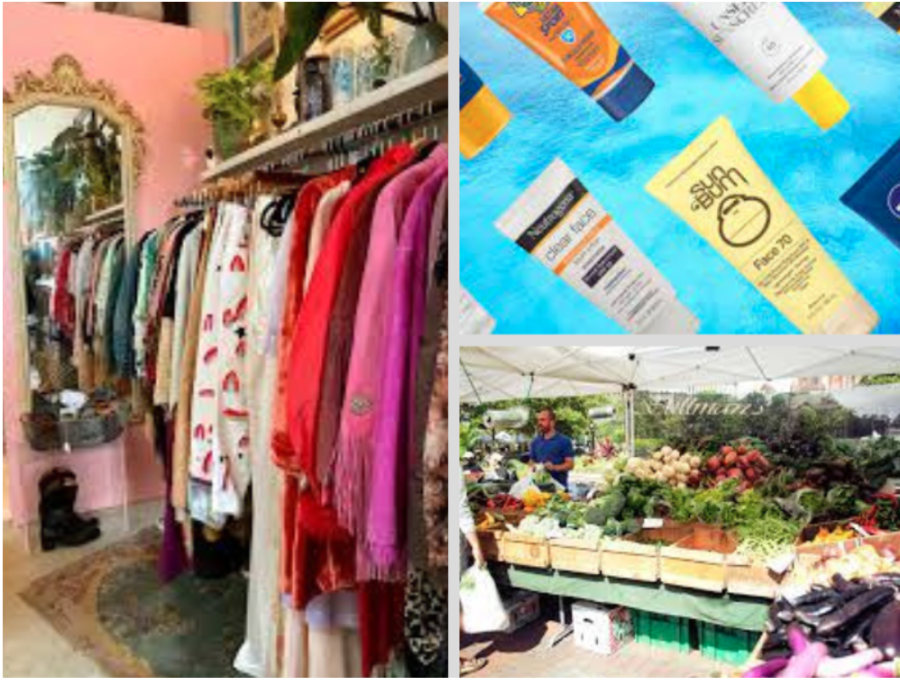How to stay sustainable this summer
June 8, 2022
By Delia Parco
Especially when having fun in the summer, it can often be hard to consider the planet when making common everyday decisions. There are lots of ways to be more environmentally conscious. First, you can shop second hand and avoid fast fashion. Wikipedia describes fast fashion as “the clothing industry business model of replicating recent catwalk trends and high-fashion designs, mass-producing them at low cost, and bringing them to retail stores quickly while demand is highest”. A specific website that is eco-friendly and promotes change in important worldly problems is called Chnge. The site’s products are made sustainably from recycled materials and they donate to various charities supporting causes such as women’s and LGBTQ+ rights, education for all, world hunger, climate change, and more. Another affordable way to shop sustainably is thrifting. In Massachusetts, annually 230,000 tons of donated clothing is thrown away. In order to combat this large scale waste of perfectly fine clothing, you can go thrifting to shop for fun new clothes and accessories. Next, wearing eco-friendly sunscreen that doesn’t damage reefs and ocean life is a small change that can have a large impact on ocean life. Lots of common drug store brands are surprisingly not reef safe. Some of these harmful sunscreen’s include Neutrogena, Hawaiian tropic, Copertone, and Sunbum. Brands like Blue Lizard, Thinksport, and All Good are both beneficial for your skin and reef safe. The particular brand Blue Lizard can be found at Walmart and CVS or on their website. Lastly, the most sustainable way to obtain groceries is locally at farmers markets. Here are a list of local ones and the times that they are open:
- Revere Farmers market at 249 Broadway, Revere, MA 02151 open on Fridays from 5-12
- East boston farmers market on 250, Sumner St, East Boston, MA 02128 open Thursdays from 2-6.
- Copley square farmers market on 139 ST. James Ave, Boston, MA
I went to the copley farmers market recently to find out what some local farmers/vendors have to say about what they do. At a tent selling microgreens the person running the tent shared with me that the microgreens that she grows are much more sustainable compared to regular vegetables due to the fact that they use 95% less water during their production. She thinks that buying produce from farmers markets is so much better than grocery stores, and more people should consider going to farmers markets when they are open.



